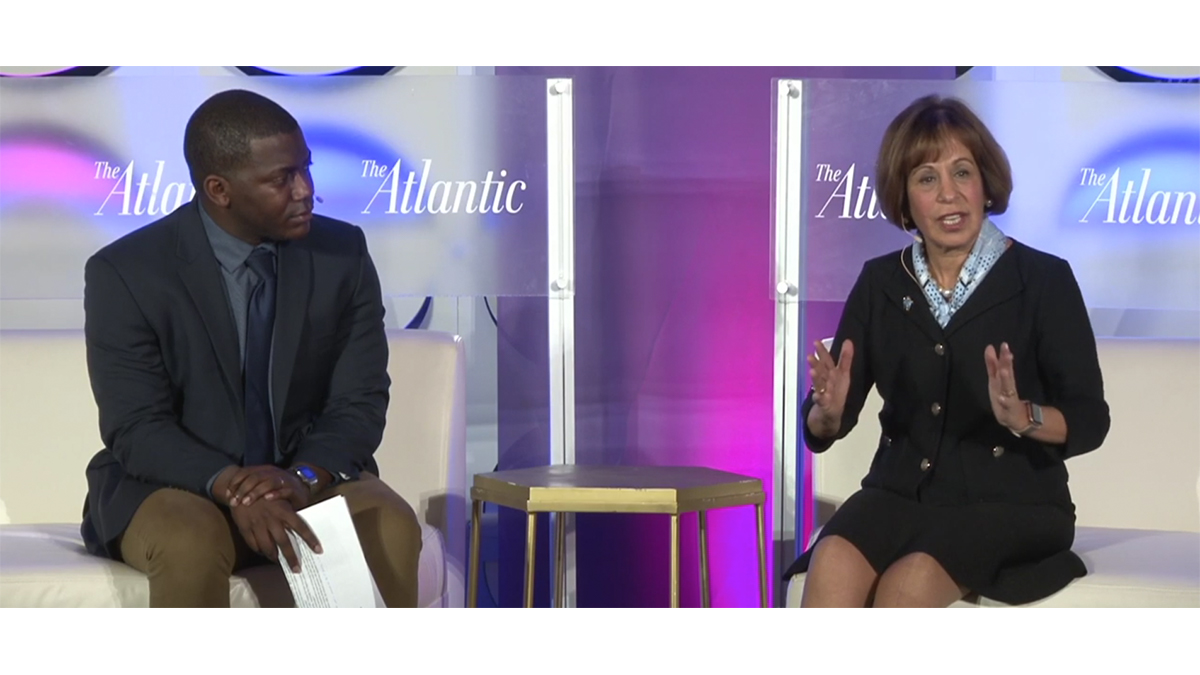Folt discusses the importance of universities and higher education affordability
Chancellor Carol L. Folt was a featured speaker at The Atlantic's annual Future of Work conference, sharing Carolina's mission of preparing tomorrow's workforce by providing accessible and affordable higher education.

A student’s income or status should have no bearing on whether he or she gets a college education, Chancellor Carol L. Folt said during The Atlantic’s The Future of Work conference on Wednesday.
“I believe if you’re a low-income student or a wealthy student, there should be no difference in your opportunity,” Folt said. “My entire focus has been excellence at any level of income.”
Each year, The Atlantic hosts The Future of Work, where thought leaders from across industries discuss trends and strategies to overcome challenges. Folt spoke for about 20 minutes about the role higher education plays in the workforce and the need to make higher education accessible to all students.
A four-year degree is more worthwhile now than ever, though higher education institutions still need to adapt for the workforce of the future, Folt said.
“Training for today is not the same as preparing for tomorrow, and that’s what we have our universities and colleges ready to do,” she said.
Folt said she strongly believes getting students access to higher education is important, but it’s also critical to ensure they can pursue internships or other opportunities while in college and that they graduate.
“It doesn’t help to get people there and not graduate them,” Folt said. “So I think you need to focus a lot of the efforts that, once they’re there, you make sure you’re doing everything to get them to graduate.”
Carolina consistently ranks at the top of the list for best value in public higher education, reflecting the University’s commitment to opening access to a high-quality, affordable education to well-qualified students from all backgrounds. The University is one of the few public flagships to practice need-blind admissions and proudly meets 100 percent of the documented need of undergraduates qualifying for need-based aid who apply on time.
In 2003, the University launched the Carolina Covenant program to guarantee students from low-income families could graduate debt-free. Fourteen percent of the Class of 2022 qualified for the Carolina Covenant.
This month, the University announced a new program, the Blue Sky Scholars, which will provide financial aid for middle-income undergraduate students from North Carolina.
Watch a replay of Folt’s discussion on The Atlantic’s YouTube page. Her interview begins at 4:04:00.




